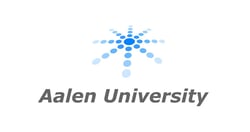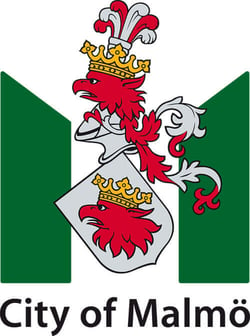Remote invigilation
Enable students to take exams from anywhere, at any time. The Digiexam online proctoring/remote invigilation software recreates the exam hall experience online, providing institutions with a reliable, secure, and convenient option for conducting digital examinations.












Remote invigilation with Digiexam
Scale capacity
Offer flexibility
Features of the Digiexam remote exam invigilation solution
Remote invigilation is an integrated tool of our examination platform. It is designed with proven technology and is there to help you both during and after the exam to ensure the integrity of the examination. We are committed to providing the highest level of support and customer service. Our team is available to help institutions get started with the Digiexam platform and our remote invigilation solution, and to provide ongoing support as needed. All features are optional and can be configured according to the specific circumstances of the exam.
ID verification
Before the exam, the Digiexam remote invigilation solution verifies the identity of the students. This requires the students’ to provide high-resolution face photos or submit an identification card/passport to be matched against the student's profile to prove their identity.
Automated invigilation
During the exam, each student's sound, webcam, and screen is recorded. The Digiexam invigilation AI flags any suspicious behavior during the examination and creates a timestamp in the recordings that can be reviewed after the exam has finished.
In-person invigilation
In addition to the automatic functionality provided, you can also have a person monitoring during the examination for extra security. Up to 30 students can be viewed simultaneously by one exam invigilator.
Additional mobile camera
Add a smartphone camera to the session in addition to the webcam. The student will connect a mobile/smartphone camera to the session using a QR code to provide an additional video feed for the automated invigilation to monitor.
Device lockdown
Credibility reports
A final report summarizes each session with supporting behavioral metrics and a recording of flagged events. In addition, you can also download a separate PDF which includes the student’s profile and photo, a session card, distribution of events and an average rating of the exam.
What is remote invigilation?
The meaning of remote invigilation
Remote invigilation refers to the method by which exams are supervised over the web. Instead of having the students come to a physical test center, they can partake in the exam on their computer from anywhere in the world as long as they have an internet connection. The purpose and meaning of remote invigilation is identical to remote/online proctoring – to supervise students taking an exam to prevent cheating and assist the students if they have any questions regarding the exam.

How does remote invigilation work?
Working of remote invigilation exam
The remote exam invigilation may either be performed manually by a human invigilator or automatically using AI, or a combination of both. The AI will flag down any suspicious activities and notify the human invigilator about it, and also create a timestamp in the recording.
The remote invigilation process
4 steps in remote invigilation
Registration
The process begins with test-takers registering for their exam or assessment. They create an account on the remote invigilation platform, providing necessary details such as identification and contact information.
System and Equipment Check
Before the exam, test-takers perform a system and equipment check to ensure compatibility with invigilation software. They verify that their computer, webcam, microphone, and internet connection meet the specified requirements.
Identity Verification
To maintain exam integrity, test-takers undergo identity verification procedures. This may involve submitting a valid ID or passport, capturing a photo, or recording a video to confirm their identity securely.
Pre-Exam Rules and Guidelines
Test-takers receive a comprehensive set of rules and guidelines that outline the conduct expected during the exam. They carefully review instructions regarding prohibited activities, permissible resources, time limits, and the utilization of specific software or browsers as stipulated by the invigilation software.
Benefits of remotely invigilated exams
Benefits for teachers
- Reduced workload for the invigilators – no need to travel to a physical location
- AI and other helpful tools streamlines and simplifies their invigilation duties
- Perfect insight into the student’s examinations by screenshare, webcam, and audio.
Benefits for institutions
- Eliminates the administrative burden of arranging in-person invigilators and physical test centers
- Allows the institutions to scale worldwide, to run exams with a greater geographical reach
- Improves reliability and increases exam integrity
- Allows for more frequent and more efficient examinations.
Benefits for students
- Allows anyone from anywhere to partake in examination
- Reduced travel time and costs
- Students can take their test in a familiar environment they feel comfortable in to reduce anxiety they may experience in a physical testing center.

Award-winning Birmingham City University on digital exams and Digiexam
The University is keen on students being able to take their exams from home, and the associated flexibility this offers them. However, home-exams increase the difficulty of ensuring academic...
Read moreWhat our customers say
As the University continues to pursue a remote assessment strategy for all courses, confidence in the systems we use to support exam integrity is vital.

Maggie Gibson Birmingham City University

Digiexam receives a lot of attention in the south of Germany since a lot of people share the belief that it will be the only product that will meet the regulatory and data privacy requirements for future online testing.

Dr. Martin Franzen Aalen University
We have students all over Sweden and abroad and they need to be able to complete their exams regardless of location. Digiexam's proctoring solution has become a key success factor for us at FEI.

Magnus Rolf Företagsekonomiska Institutet
Interested in remote invigilation?
What to consider
Meet the platform
Let us show you how it works.
Read more
Digiexam plans and pricing
Find a pricing plan for you
Read moreEnterprise security
Academic integrity can never be compromised.
Read moreFAQ – Remote invigilation exam
What is the meaning of the word invigilation?
Can a remote invigilation app detect cheating?
Yes. Remote exam invigilation app/software can detect cheating either by AI or a human invigilator. The human invigilator monitors you during the exam via video, audio, and on-screen sharing, and can also watch a recording of it afterwards. The AI supports the human invigilator’s activities and flags down any suspicious activities and notifies the invigilator about it.